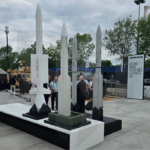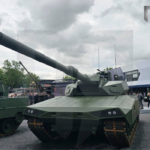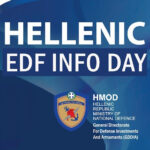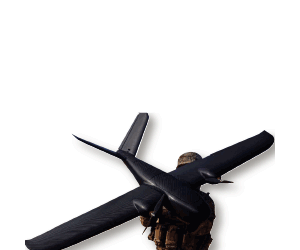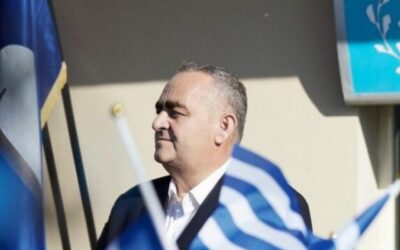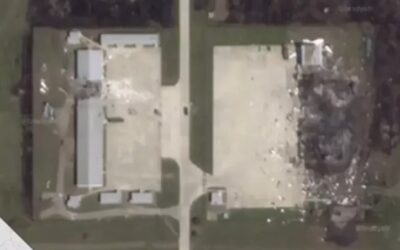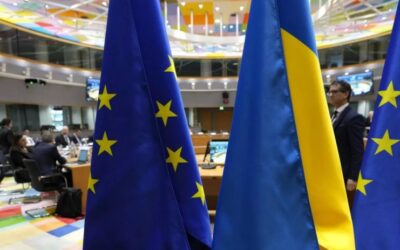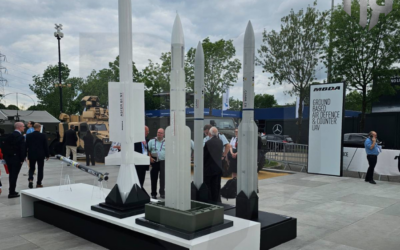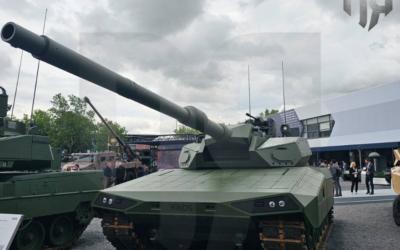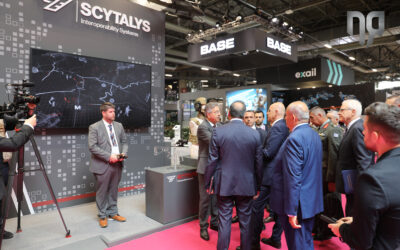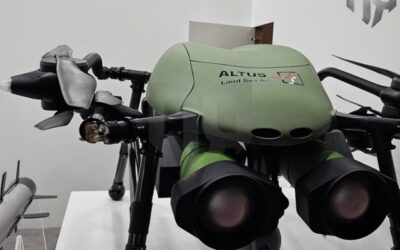The elected mayor of Heimarra and Member of the European Parliament of New Democracy will remain in prison until October…
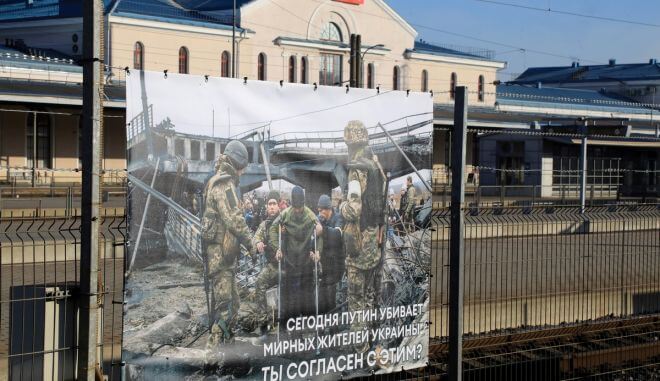
The dispute between Russia and Lithuania is escalating, as the Baltic state has blocked the transport of goods that are subject to sanctions to the Russian enclave of Kaliningrad.
In particular, according to the Russian state news agency TASS, the products subject to sanctions include construction machinery, machine tools, steel, and other metals, other industrial equipment as well as some luxury items. Products subject to sanctions will now have to travel by sea, which raises shipping costs.
The Lithuanian Foreign Ministry reiterated that it has not imposed unilateral restrictions and that it is in line with EU directives, based on EU sanctions that came into force on Saturday and were imposed in response to Russia’s decision to send troops to Ukraine.
However, Moscow threatens by saying “how will it respond”. Moscow’s response to Lithuania’s block of the passage of goods to the Russian enclave of Kaliningrad will not be merely diplomatic, but also of a practical nature, said Russian Foreign Ministry spokeswoman, Maria Zakharova.
The Kremlin also said that EU sanctions, which led Lithuania to block the passage of certain goods from mainland Russia to Kaliningrad, were “absolutely unacceptable” and that Moscow was working on measures in retaliation.
The Kaliningrad enclave is Russia’s westernmost territory and the only part of the country surrounded by EU states. As of Monday, CNN reported that the Lithuanian Railways, the state-owned railway company, would no longer allow trains carrying goods subject to EU sanctions.
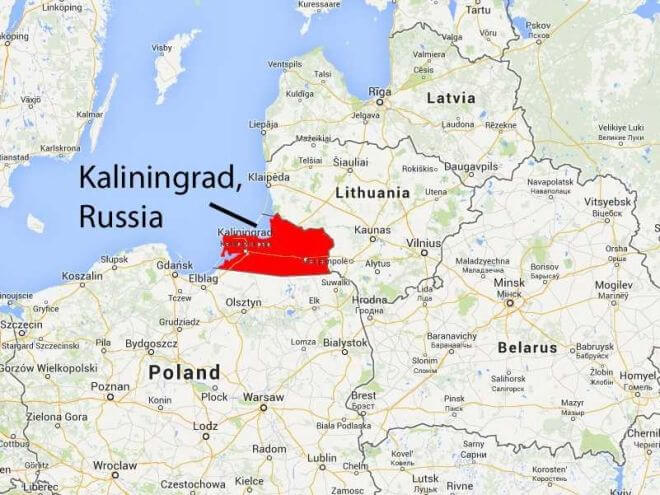
Also read: European Commission | “Yes” to Ukraine’s EU candidate status
Kaliningrad’s strategic importance and nuclear weapons
Kaliningrad was for a number of years a heavily militarized area, not accessible to foreigners. It has a population of about one million inhabitants, the majority of whom live in the homonymous capital. The port of the region is the westernmost port in Russia and is largely snow-free all year round. The Suwalki Corridor, the only land connection between the Baltic states and the rest of the European Union, is also part of the enclave.
Kaliningrad is also the headquarters of the Russian Baltic Fleet. In 2002, the EU and Moscow reached an agreement on Russia’s open access to Kaliningrad, before Poland and Lithuania joined the European Union in 2004. Russia now claims that the 2002 agreement has been violated.
Kaliningrad became even more important to Russia with the planned accession of Sweden and Finland to NATO. Dmitry Medvedev, the Vice President of the Russian National Security Council, recently said that with the Alliance’s accession plans, “we can no longer talk about a non-nuclear regime in the Baltic. The balance must be restored.”
Russia has not admitted that it has nuclear weapons in Kaliningrad, but in 2018 the Federation of American Scientists concluded that Russia had significantly upgraded a nuclear weapons depot in the region, based on satellite image analysis.
Following Russia’s invasion of Ukraine, Lithuania urged NATO to increase troop deployments on its territory. At the same time, it called for the security of the Suwalki corridor, which is vital for the country, to be strengthened.
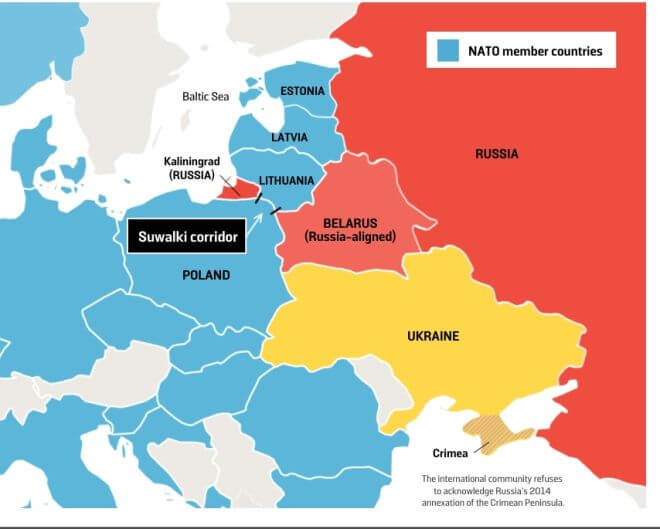
What is worrying is that in an escalation of the conflict with the West, Russia could close this corridor by cutting off the Baltic states from their allies to the south.
Such a move would also result in a direct confrontation between Moscow and NATO’s nuclear-armed members, pushing the world to the brink of an unprecedented conflict.
Also read: J. Stoltenberg | “Turkey’s concerns over Finland-Sweden NATO membership are legitimate”
READ MORE
Ukraine | Satellite images depict destruction of Russian drone base
Ukraine claims that satellite images show the destruction of a Russian warehouse used to launch Iranian-made drones and train cadets.
EU | Accession negotiations with Ukraine and Moldova officially kick off Tuesday
EU Finance Ministers meeting in Luxembourg formally approved the framework for negotiations with the two candidate countries…
EUROSATORY 2024 | Missile Artillery Solutions from MBDA
With such a large number of interested attendees at MBDA’s pavilion at the Eurosatory 2024 Defence exhibition, the stand reminded of an…
KNDS | Showcases full range of LEOPARD battle tanks at EUROSATORY
KNDS continues to expand its technological advantage in the field of main battle tank development, as we have witnessed at the Defence and…
THEON SENSORS | Distinguishing appearance at EUROSATORY 2024 with new range of products
THEON SENSORS attended the International Defence and Security Exhibition EUROSATORY 2024 as an ambassador of Greek innovation…
Ministry of Defence | Organization of Hellenic EDF Info Day
A Conference entitled “EDF Info Day” is organized in the Amphitheater of the National Gallery on Tuesday, July 9 from 09:00 to 17:00.
ALTUS LSA | Participates in EUROSATORY 2024 with KERVEROS in the foreground
The participation of ALTUS LSA in EUROSATORY 2024 is among the Greek participations of operational significance.
Freddy Beleris | Ιn jail until October
The elected mayor of Heimarra and Member of the European Parliament of New Democracy will remain in prison until October…







